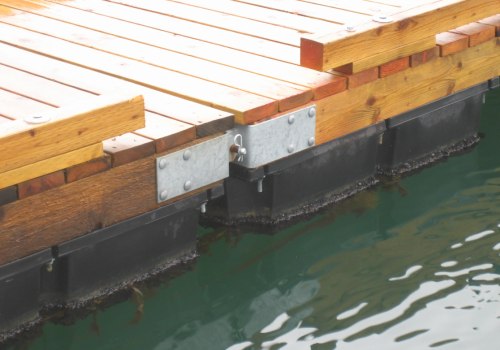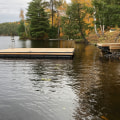Welcome to our comprehensive guide on custom dock design and building. If you're a watercraft owner looking to create the perfect dock for your vessel, you've come to the right place. In this article, we will cover everything you need to know about constructing, installing, and maintaining a custom dock that meets your specific needs and preferences. Whether you're a seasoned boater or new to the world of watercrafts, we've got you covered.
So sit back, relax, and let us guide you through the process of creating the ideal dock for your watercraft. This article is part of our Silo on Dock Services, specifically focusing on Installation and Construction Services. So without further ado, let's dive into the world of custom dock design and building. When it comes to owning a boat or watercraft, having a reliable and well-built dock is essential. Not only does it provide a safe place to dock your vessel, but it also adds value to your property.
However, building a custom dock can seem like a daunting task, especially if you have limited knowledge or experience in this area. In this article, we will cover all the important aspects of custom dock design and building, including construction, installation, maintenance, and costs. By the end, you will have all the information you need to create the perfect dock for your watercraft.
Main Purpose of a Dock
The main purpose of a dock is to serve as a platform for boats and watercraft to dock or moor. It also provides access to the water.When designing and building a custom dock, there are several factors to consider such as location, size, materials, and budget.
Location
The location of the dock will depend on the type of water body (lake, river, ocean) and its surroundings. It's important to choose a location that is suitable for your needs and preferences. For example, if you plan on using your dock for recreational purposes, you may want to choose a location that offers calm waters and scenic views. On the other hand, if you plan on using your dock for commercial purposes, you may want to choose a location with easy access to busy waterways.Size
The size of the dock will depend on the number and size of your vessels.It's important to determine how many boats or watercraft you plan on docking at one time and their sizes. This will help you determine the appropriate size for your custom dock.
Materials
Choosing the right materials for your custom dock is crucial for its durability and longevity. You want to choose materials that can withstand constant exposure to water and weather elements. Some common materials used for dock construction include wood, aluminum, concrete, and composite materials.Each material has its own advantages and disadvantages, so it's important to do your research and choose the best option for your specific needs and budget.
Budget
Your budget will play a significant role in determining the type of materials you can use for your custom dock. It's important to set a budget and stick to it while also considering the quality and durability of the materials you choose.Construction: Building a Strong and Stable Custom Dock
When it comes to construction, the two main types of docks are fixed and floating. Fixed docks are permanently attached to the shore or seabed, while floating docks are anchored in place but can move with the water level. Both types have their advantages and disadvantages, so it's important to weigh your options carefully.Whichever type you choose, the construction process will involve laying the foundation, building the frame, and adding decking and other accessories. It's crucial to follow safety guidelines and obtain any necessary permits before beginning construction. In conclusion, a custom dock is a valuable addition to any waterfront property. By considering all the important factors and carefully planning the design and construction process, you can create a strong, durable, and functional dock that will last for years to come. Regular maintenance is also essential to keep your dock in top condition and ensure the safety of your vessels.
With this information, you are now equipped to embark on your custom dock design and building journey.






